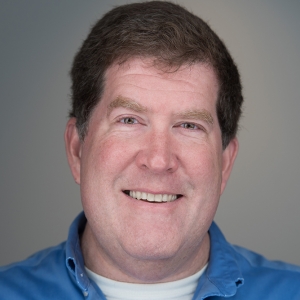The American Physical Society has honored Chad Orzel, associate professor of physics and astronomy, as a member of the Society’s 2021 Fellows.
The APS Fellowship Program recognizes members who have made exceptional contributions to the physics enterprise in physics research, important applications of physics, leadership in or service to physics, or significant contributions to physics education.
Each year, no more than one-half of one percent of the Society membership is recognized by their peers for election to the status of Fellow in the American Physical Society. This year, 155 Fellows were selected for their contributions to science in an announcement Wednesday.
Orzel was nominated through the Forum on Outreach and Engaging the Public, which focuses on improving the public's knowledge of and appreciation for physics.
In addition to teaching and research, Orzel writes books about science for non-scientists. His first book, "How to Teach [Quantum] Physics to Your Dog," explains modern physics through imaginary conversations with his German shepherd, Emmy. His most recent book, "Breakfast with Einstein: The Exotic Physics of Everyday Objects," explains how quantum physics shows up in the course of ordinary morning activities. "A Brief History of Timekeeping," which covers 5,000 years of the science and technology of marking time, is due out in January. It is based in part on a sophomore research seminar he has taught at Union.
Orzel also maintains a steady online presence, which started with the launch of a blog, Uncertain Principles, in 2002. He is a regular contributor to Forbes and Substack.
“I use those platforms to try to show people a bit about life as a scientist and some of the wonders of physics, particularly quantum mechanics,” said Orzel. “This goes hand in hand with my work teaching at Union. Much of what's in the books and on the blogs is drawn from courses I teach, and I've used materials I developed for the books in some of my courses.”
Orzel said it is a great honor to have his work recognized by his peers.
“It really means a lot to know that other members of the physics community appreciate the time and effort I've put into trying to share physics with the broader public,” he said. “It would not have been possible without support from the Union community, both directly providing me the time and space to research and write (and access to library books and journals), and more indirectly through having colleagues to ask questions and bounce ideas off.”
Orzel joined Union in 2001.

